Go to patient/caregiver site
Not an actual patient.


Narcolepsy disrupts both day and night2,3
The symptoms are myriad and debilitating
The symptom pentad consists of excessive daytime sleepiness (EDS), disrupted nighttime sleep (DNS), cataplexy, sleep paralysis, and hypnagogic and hypnopompic hallucinations.4
Symptoms go beyond daytime sleepiness.
Find Out How
"I was randomly sleepy around the clock. It was like I stopped sleeping when I was sleeping, and I stopped being awake when I was awake."
Nighttime symptoms impact patients2,3
While daytime symptoms are most cited by patients, nighttime symptoms impact them too3
Additionally, people living with narcolepsy are burdened with unrelenting symptoms affecting nearly every aspect of their daily life and have to constantly manage their condition; they tend to experience a lower quality of life.5


During the day
Cognitive difficulties as a result of EDS significantly interfere with school, work, relationships, and social life.2,6

In a survey of over 1000 narcolepsy patients, 84% said their school or work performance was impaired.7

At night
DNS in narcolepsy is associated with sleep fragmentation and lack of sleep continuity, ultimately leading to nonrefreshing, poor-quality sleep night after night.8,9

In a survey of 75 narcolepsy patients, 86% reported experiencing poor nighttime sleep.10*

*Reported as "fairly often," "usually," or "almost always."

"When I woke up in the morning, I felt that nothing had happened overnight—that there was no real difference between nighttime and daytime, no matter what I did or what I tried."
Not an actual patient.
Patients need education on sleep cycles and consolidated sleep
For narcolepsy patients, the sleep-wake cycle is dysregulated1
Healthy, good-quality sleep requires sufficient duration, appropriate timing, and regularity.11 However, this may not occur in narcolepsy patients. They often don't get consolidated sleep at night, so they are unable to move through sleep phases properly.1,8,9 This means restful, restorative sleep is out of reach.
Wake
REM
N1
N2
N3


Graphics are for example only and may not be representative of all individuals with or without narcolepsy.
Graphic adapted with permission from Rogers AE, Aldrich MS, Caruso CC. Patterns of sleep and wakefulness in treated narcoleptic subjects. Sleep. 1994;17(7):590-597. doi:10.1093/sleep/17.7.590.

Disrupted nighttime sleep is a known symptom of narcolepsy, but it is often overlooked.8 Consider asking your patients about their nights in addition to their days.
Get a resource to help educate patients about the stages of sleep
Gaining clarity around sleep-wake cycle dysfunction can help your patients, day and night. But for many people, the particulars of the sleep cycle and its phases are an abstract concept. To help simplify the story, we created a printable visual aid that walks your patients through each phase of the sleep cycle, what it does, and why it matters.
Download the Sleep Cycle Visual AidYou can help patients manage the disruption
Helping patients understand why we sleep
Before patients make lifestyle changes to improve sleep, it may help to educate them as to why we need consolidated sleep in the first place. As they move through sleep cycles, each stage of sleep performs different functions, ranging from memory processing to physiological recovery from exercise and stress.12 To lose out on a sleep cycle, or short-change any one phase, is to rob the body and brain of vital function.13
Conversely, good, consolidated sleep can yield myriad benefits.12
Download as PDF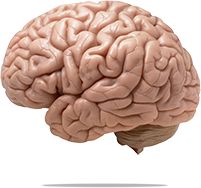
Improve memory
Improve memory
Sleep is vital before and after learning.14 Good sleep prior ensures the brain is primed to soak up new information, while good sleep after helps transfer the learned information from short-term memory to long-term.
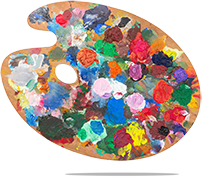
Boost creativity
Boost creativity
While in rapid eye movement (REM) sleep, we dream. The brain forms connections between the most unconnected thoughts, visuals, and ideas—connections that may be impossible while awake.12 In doing so, it may drive problem-solving and creative thinking.
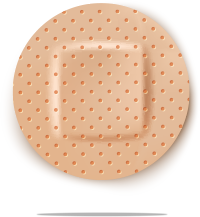
Recover physically
Recover physically
Non-REM (NREM) sleep has been shown to aid physical recovery, helping us heal from injury and illness, as well as after exercise.12

Improve mood and reduce stress
Improve mood and reduce stress
Interestingly, a study has shown that sleepless nights increased anxiety levels by 30%.15 Sufficient NREM sleep may help reorganize connections in the brain, reducing anxiety and stress levels.
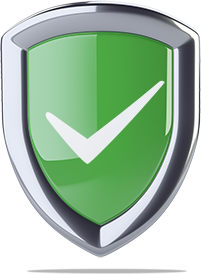
Strengthen the immune system and fight disease
Strengthen the immune system and fight disease
Studies have shown that reducing the amount of sleep a person gets weakens their immune system's ability to fight off infection, while a good night of sleep boosts the activity of their immune system.12,16

Clearly, good, consolidated sleep is a goal every person should have. In narcolepsy patients, it's more difficult. However, there is something they can do in addition to medication to improve sleep at night: change their lifestyle.
People with narcolepsy may need to navigate both pharmacologic treatment and lifestyle changes3,4†
In addition to medication, lifestyle changes (particularly practicing good sleep hygiene) can help people living with narcolepsy better manage their symptoms.17 Simple changes—day and night—can make a tangible difference in their experience. Here are just a few to share with your patients.
†Sleep tips are based on information from the Sleep Foundation and the Centers for Disease Control and Prevention.
Download as PDF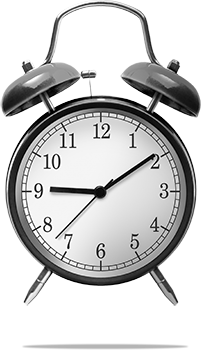
Strive for consistent sleep and wake times18
Strive for consistent sleep and wake times18
Try going to bed and waking up at the same time every day, even weekends. This may help train your body and brain to relax and wake up at the best times for your schedule.

Keep the best conditions for sleep18,19
Keep the best conditions for sleep18,19
Make sure your bedroom is dark, quiet, and a cool comfortable temperature (60°F to 67°F is recommended). Turn off screens an hour before bed. Light (especially the blue light on computer and phone screens) can prevent the brain from releasing melatonin—a key driver of sleepiness at night.20
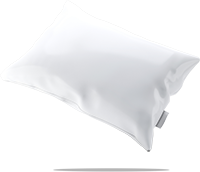
Plan naps around important events17
Plan naps around important events17
If you have something important to attend to, make sure you're as fresh as possible by scheduling a short nap prior.
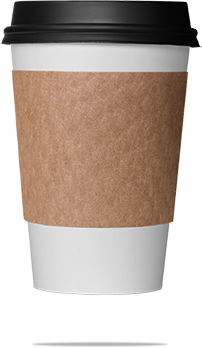
Cut out food and drink before bedtime18
Cut out food and drink before bedtime18
Try not to eat or drink before bed, especially caffeinated beverages or alcohol. The effects of caffeine may last for many hours, so caffeinated drinks even in the middle of the day may still be in your system and make it harder to fall asleep at night.21 Alcohol is a sedative, which means it slows down some of your body's processes; however, being sedated isn't the same as being asleep.22 It doesn't allow for deep sleep and all of the benefits that come along with it.
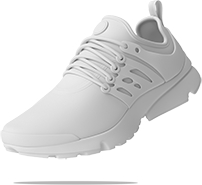
Stay active!18
Stay active!18
Exercise during the day can make your body feel a greater need for sleep at night. Not only is exercise helpful for restful sleep, it's also good for your general, physical, and mental health.23 Try not to exercise too late in the evening or too close to bedtime, as this can actually make your body feel more awake.
*Sleep tips are based on information from the Sleep Foundation and the Centers for Disease Control and Prevention.
Not an actual patient.
Sign up to request more information from Avadel
Complete the form to learn more from an Avadel representative about how to help your patients prioritize their sleep patterns.
Not a healthcare professional? Sign up via our patient/caregiver site.
References
1. Mohsenin V. Narcolepsy—master of disguise: evidence-based recommendations for management. Postgrad Med. 2009;121(3):99-104. doi:10.3810/pgm.2009.05.2008 2. Swick TJ, Bogan RA, Thorpy M. Challenges and opportunities in the management of narcolepsy CME. Medscape. June 13, 2019. Accessed March 4, 2020. https://www.medscape.org/viewarticle/914057_print 3. Bassetti CLA, Kallweit U, Vignatelli L, et al. European guideline and expert statements on the management of narcolepsy in adults and children. Eur J Neurol. 2021;28(9):2815-2830. doi:10.1111/ene.14888 4. Thorpy MJ, Dauvilliers Y. Clinical and practical considerations in the pharmacologic management of narcolepsy. Sleep Med. 2015;16(1):9-18. doi:10.1016/j.sleep.2014.10.002 5. Ong JC, Fox RS, Brower RF, Mazurek S, Moore C. How does narcolepsy impact health-related quality of life? A mixed-methods study. Behav Sleep Med. 2021;19(2):145-158. doi:10.1080/15402002.2020.1715411 6. Scammell TE. Treatment of narcolepsy in adults. UpToDate. November 4, 2020. Accessed November 17, 2020. https://www.uptodate.com/contents/treatment-of-narcolepsy-in-adults 7. Wozniak DR, Quinnell TG. Unmet needs of patients with narcolepsy: perspectives on emerging treatment options. Nat Sci Sleep. 2015;7:51-61. doi:10.2147/NSS.S56077 8. Roth T, Dauvilliers Y, Mignot E, et al. Disrupted nighttime sleep in narcolepsy. J Clin Sleep Med. 2013;9(9):955-965. doi:10.5664/jcsm.3004 9. Mahoney CE, Cogswell A, Koralnik IJ, Scammell TE. The neurobiological basis of narcolepsy. Nat Rev Neurosci. 2019;20(2):83-93. doi:10.1038/s41583-018-0097-x 10. Dubow J, Avidan AY, Corser B, et al. Preferences for attributes of sodium oxybate treatment: a discrete choice experiment in patients with narcolepsy. Patient Prefer Adherence. 2022;16:937-947. 11. Ramar K, Malhotra RK, Carden KA, et al. Sleep is essential to health: an American Academy of Sleep Medicine position statement. J Clin Sleep Med. 2021;17(10):2115-2119. doi:10.5664/jcsm.9476 12. Suni E. Stages of sleep. Sleep Foundation. Updated August 14, 2020. Accessed September 14, 2021. https://www.sleepfoundation.org/how-sleep-works/stages-of-sleep 13. Walker MP. Your mother and Shakespeare knew: the benefits of sleep for the brain. In: Why We Sleep. Scribner; 2018:108-109. 14. Sleep, learning, and memory. Healthy Sleep—Harvard Medical School Division of Sleep Medicine. Updated December 18, 2007. Accessed October 27, 2021. https://healthysleep.med.harvard.edu/healthy/matters/benefits-of-sleep/learning-memory 15. Simon EB, Rossi A, Harvey AG, Walker MP. Overanxious and underslept. Nat Hum Behav. 2020;4(1):100-110. doi:10.1038/s41562-019-0754-8 16. Suni E. How sleep affects immunity. Sleep Foundation. Updated November 19, 2020. Accessed November 21, 2021. https://www.sleepfoundation.org/physical-health/how-sleep-affects-immunity 17. Suni E. Narcolepsy treatment. Sleep Foundation. Updated February 17, 2021. Accessed August 25, 2021. https://www.sleepfoundation.org/narcolepsy/treatments 18. Tips for better sleep. Centers for Disease Control and Prevention. Updated July 15, 2016. Accessed August 23, 2021. https://www.cdc.gov/sleep/about_sleep/sleep_hygiene.html 19. What's the best temperature for sleep? Cleveland Clinic. November 16, 2021. Accessed February 10, 2022. https://health.clevelandclinic.org/what-is-the-ideal-sleeping-temperature-for-my-bedroom/#:~:text=As%20a%20rule%20of%20thumb,does%20temperature%20affect%20your%20sleep%3F 20. Blue light has a dark side. Harvard Health Publishing. July 7, 2020. Accessed November 21, 2021. https://www.health.harvard.edu/staying-healthy/blue-light-has-a-dark-side 21. Caffeine: how to hack it and quit it. Cleveland Clinic. Updated December 23, 2020. Accessed October 29, 2021. https://my.clevelandclinic.org/health/articles/15496-caffeine-how-to-hack-it-and-how-to-quit-it 22. Pacheco D. Alcohol and sleep. Sleep Foundation. Updated September 4, 2020. Accessed November 8, 2021. https://www.sleepfoundation.org/nutrition/alcohol-and-sleep 23. Exercising for better sleep. Johns Hopkins Medicine. Accessed November 8, 2021. https://www.hopkinsmedicine.org/health/wellness-and-prevention/exercising-for-better-sleep 24. Lawrence G, Muza R. Assessing the sleep habits of patients in a sleep disorder centre: a review of sleep diary accuracy. J Thorac Dis. 2018;10(suppl 1):S177-S183. doi:10.21037/jtd.2017.12.127 25. Kornum BR, Knudsen S, Ollila HM, et al. Narcolepsy. Nat Rev Dis Primers. 2017;3:1-19. doi:10.1038/nrdp.2016.100 26. Barker EC, Flygare J, Paruthi S, Sharkey KM. Living with narcolepsy: current management strategies, future prospects, and overlooked real-life concerns. Nat Sci Sleep. 2020;12:453-466. doi:10.2147/NSS.S162762
Individual patient experiences and preferences may vary and do not represent medical advice.


